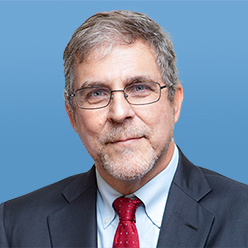Saudi Arabia is in the midst of a long overdue housecleaning. The mass arrests of members of the government, royals and businessmen that have taken place in recent days are unprecedented in modern times, and the country's attorney general has promised that what has taken place so far is only "phase one."
The Saudi shake-up has been a long time coming. The world has changed significantly in recent decades, but the notoriously conservative and insular kingdom has been slow to adapt. Neighboring countries like the United Arab Emirates have modernized rapidly and opened up to outside investment, tourism and travel. It is high time for the Saudis to see if they can do the same.
Thirty-two-year-old Crown Prince Mohammed bin Salman has been the driving force behind the kingdom's liberalization. Since the ascension of his father King Salman to the throne in 2015, bin Salman has pursued greater rights for women, cut back on the powers of the religious police and taken a hard line against fundamentalism. "Seventy percent of the Saudi people are less than 30 years old, and quite frankly, we will not waste 30 years of our lives dealing with extremist ideas," bin Salman said last month. "We will destroy them today."
The economic changes bin Salman is pushing are a tacit admission that the old days of Mideast energy dominance are over. Crude oil that had been selling at over $100 a barrel in the summer of 2014 now fetches about half that amount. This has largely to do with the energy revolution in North America, driven by fracking and other new technologies. American crude oil production has almost doubled since 2008, and the United States has become the leading world producer of oil and natural gas. Saudi Arabia had initially attempted to cope with this development by expanding production, with the hope that lowering prices further would make relatively more expensive fracking economically untenable. Instead, the industry consolidated, adapted and kept right on fracking. The author of the Saudi strategy, oil minister Ali al-Naimi, was removed two years later.
Since then, the kingdom has backed gradual production cuts to support oil prices. The latest and largest gains in oil have come from market jitters over the internal crackdown itself. The long-term risks of remaining an energy mono-economy cannot be overstated. Wary Saudis may be looking at previously oil-rich Venezuelans eating their pets as a future to be avoided.
Instead, Saudi Arabian planners envision a more diversified economic model, as laid out in the transformative "Vision 2030," which was rolled out last year. How the vision will be implemented was highlighted last month at an event in Saudi Arabia called the Future Investment Initiative. A centerpiece of the plan is the construction of two new cities, Qiddiya, near Riyadh, and the Red Sea megaplex NEOM, billed as "an entire new land, purpose-built for a new way of living." The name is a contraction of "neo-mostaqbal," or "new future." The massive NEOM zone, which is larger than Dubai, will stretch along the entire east coast of the Gulf of Aqaba, and will have cross-border participation by Egypt and Jordan. According to its promotional material, NEOM "will operate as an independent economic zone - with its own laws, taxes and regulations specially created to boost healthy growth and wealth for the region, investors and residents." NEOM seeks to become the ultimate expression of globalism.
The radical nature of this vision may help to explain the crackdown in the Kingdom. The young, ambitious, liberal and outward-looking crown prince has surely ruffled feathers among the old guard. Charges of "corruption" are sufficiently fluid in a regime where the state is the principal source of wealth that a case can be made against anyone standing in the way of change and/or the crown prince's consolidation of power.
The United States definitely approves of the course of events. "I have great confidence in King Salman and the Crown Prince of Saudi Arabia, they know exactly what they are doing," President Donald Trump tweeted on Monday, adding that "some of those they are harshly treating have been 'milking' their country for years!" The president may have been referring to recently arrested billionaire Prince Alwaleed bin Talal, who said in December 2015 that Trump was "a disgrace not only to the GOP but to all America. Withdraw from the U.S. presidential race as you will never win." Alwaleed also has close ties to the Clintons and has been a supporter of their foundation. Bin Salman, meanwhile, has developed a close relationship with presidential son-in-law Jared Kushner, who visited before the crackdown began.
The purge also comes in the context of renewed friction with Iran. On Saturday, Houthi rebels in Yemen fired a Burkan H2 short-range ballistic missile at King Khaled International Airport, 530 miles from the Yemini border. Saudi forces intercepted the attack with a barrage of MIM-104 Patriot missiles. Bin Salman accused Iran of supplying the missile to the Houthis, which he called an act of "direct military aggression," and said the attack itself "may be considered an act of war." Opposition to Iranian expansionism is another clear line of comity between the United States and Saudi Arabia, and Tehran's increasing assertiveness is certain to solidify relations between the two countries. Whether the Saudis can manage the stresses of rapid internal change while facing external aggression remains to be seen, but bin Salman seems to be able to count on White House backing for doing what needs to be done.
James S. Robbins is senior fellow for national security affairs at the American Foreign Policy Council.
Want these sent to your inbox?
Subscribe
A Saudi Shake-Up At Last
Related Categories:
Middle East
